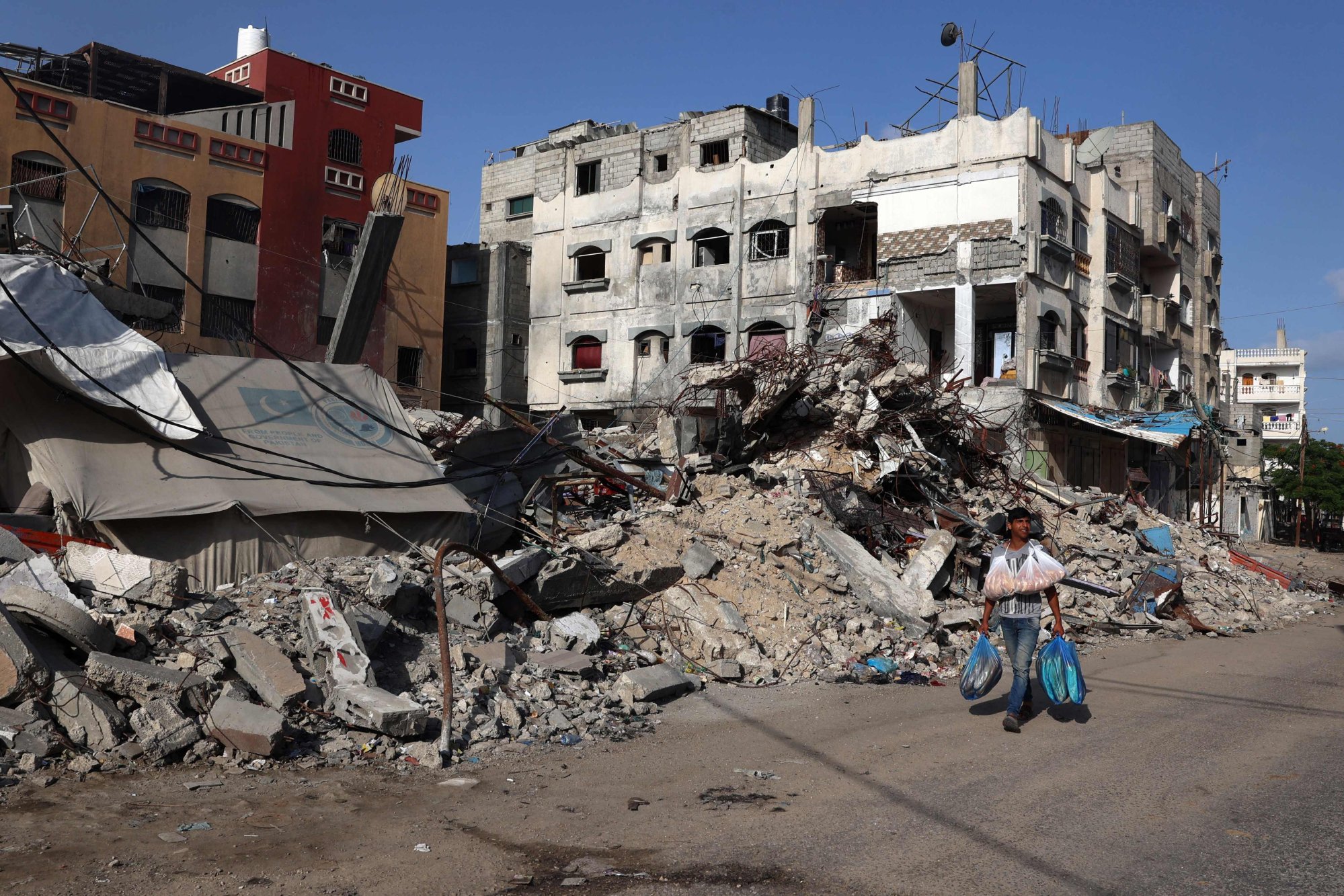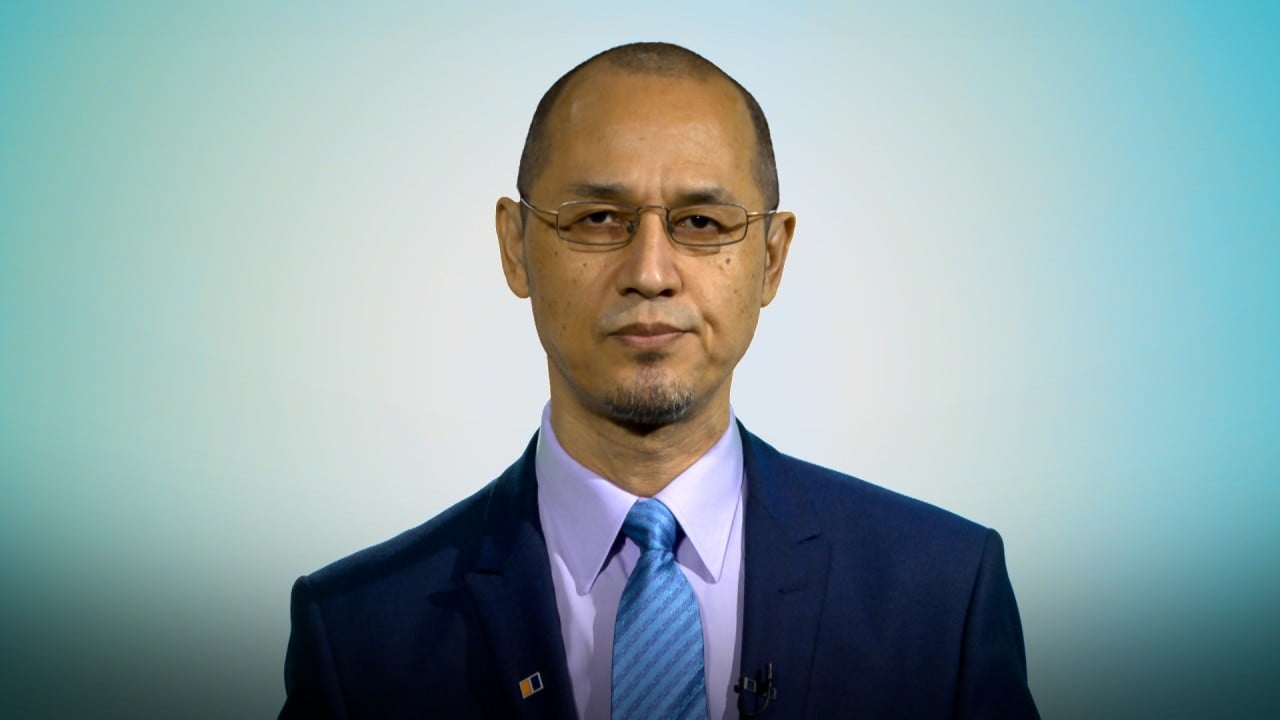The military said that “a number of the projectiles were intercepted” by Israeli air defences, with no initial reports of casualties.
An AFP correspondent in the Gaza Strip reported seeing rockets being fired from Rafah.
Rocket sirens blared in Tel Aviv for the first time in months, sending people scrambling for bomb shelters.
The attacks came as an Israeli senior official, speaking on condition of anonymity, said that “the war cabinet is expected to meet in Jerusalem tonight at 2100 (local time) to discuss a hostage release deal”.
The official had said on Saturday that “there is an intention to renew these talks this week” after negotiations involving US, Qatari and Egyptian mediators had stalled in early May.
US President Joe Biden has pushed for renewed international efforts to halt the Gaza war, and CIA chief Bill Burns on Friday met Mossad director David Barnea and Qatar’s prime minister in Paris.
While Israel’s main focus is to free the remaining hostages, Hamas has insisted on a permanent end to the war raging since October 7 – a demand Prime Minister Benjamin Netanyahu has so far rejected out of hand.
A member of the Hamas political bureau, Izzat al-Rishq, however said on Sunday that “regarding the rumours about negotiations, we have not received anything from the mediators” so far.
He insisted on Hamas’s long-standing demand for a permanent cessation of hostilities in all of Gaza as “the foundation and the starting point for anything”.
Rishq charged that Netanyahu is “trying to buy more time to continue the aggression” while seeking to create the “false impressions of his concern” for the Gaza captives and their families.
Netanyahu has vowed to destroy Hamas to prevent any repeat of an attack of the kind the Palestinian Islamist group launched on October 7.
But he also faces strong pressure from families of the hostages – and from top ally the United States, where outrage over the Gaza war and US support for Israel has become a major issue for Biden in the election battle against Donald Trump.
The Gaza war ground on, as more air strikes and artillery shelling rained down on northern, central and southern areas on Sunday.
Israel’s military said that over the past 24 hours it had destroyed “over 50 terror targets across the Gaza Strip”.
In Jabilia, troops had raided a weapons depot “embedded inside a school where troops located dozens of rocket parts and weapons”.
Fighting has centred on Rafah, where Israel has vowed to destroy the last remaining Hamas battalions despite a chorus of international opposition to a ground invasion.
Gaza’s civil defence agency said it had retrieved six bodies after a house was targeted in a strike on eastern Rafah.
“The situation in Rafah is one of constant bombardment from land and air, which has destroyed many houses,” one Rafah resident, Moaz Abu Taha, 29, said.
“We are also suffering from hunger, thirst and a severe lack of aid.”
The military said that “during targeted operations in the area of Rafah, terrorist operatives who attempted to attack IDF troops were eliminated”.
Israeli troops had also “located tunnel shafts and large quantities of weapons, including AK-47s, RPGs, grenades and explosives” and struck two rocket launchers that were aimed at the Kerem Shalom border crossing.
Hamas, meanwhile, said on Saturday it had taken “prisoner” at least one Israeli soldier in an ambush in the Jabilia camp – a claim the army denied.

The war broke out after Hamas’s October 7 attack on southern Israel, which resulted in the deaths of more than 1,170 people, mostly civilians, according to an AFP tally based on Israeli official figures.
Militants also took 252 hostages, 121 of whom remain in Gaza, including 37 the army says are dead.
Israel’s retaliatory offensive has killed at least 35,984 people in Gaza, mostly civilians, according to the Hamas-run territory’s health ministry.
The UN has warned of looming famine in the besieged territory, where most hospitals are no longer functioning.
Israel’s military said on Sunday the arrival of aid had been stepped up, both via a new US-built pier and through its own land crossings, Kerem Shalom and Erez West.
Over the past week, 127 trucks had arrived via the pier, and 2,065 via the two land crossings, it said.
US Central Command said on Saturday that four US army vessels supporting the pier broke free of their moorings in heavy seas and ran aground, with Israel aiding the recovery effort.
Amid the bloodiest ever Gaza war, Israel has faced growing global outcry over the surging civilian death toll.
Last week, it faced landmark moves from two international courts based in The Hague, and from three European governments.
Last Monday, the prosecutor at the International Criminal Court said he would seek arrest warrants on war crimes charges against Netanyahu and his defence minister as well as against three top Hamas figures.
On Wednesday, Ireland, Norway and Spain said they would recognise Palestinian statehood by May 28, a move Israel angrily rejected as a “reward for terrorism”.
And on Friday, the International Court of Justice ordered Israel to halt its Rafah offensive or any other operation there that could bring about “the physical destruction” of the Palestinians.
One displaced Gazan, Umm Muhammad Al-Ashqa, said that “we hope that the International Court of Justice will put pressure on Israel to stop this war, this war of extermination”.
“I will scream with joy when this decision is implemented.”


